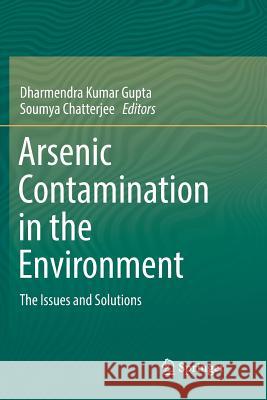Arsenic Contamination in the Environment: The Issues and Solutions » książka
topmenu
Arsenic Contamination in the Environment: The Issues and Solutions
ISBN-13: 9783319853772 / Angielski / Miękka / 2018 / 218 str.
Kategorie:
Kategorie BISAC:
Wydawca:
Springer
Język:
Angielski
ISBN-13:
9783319853772
Rok wydania:
2018
Wydanie:
Softcover Repri
Ilość stron:
218
Waga:
0.33 kg
Wymiary:
23.39 x 15.6 x 1.27
Oprawa:
Miękka
Wolumenów:
01
Dodatkowe informacje:
Wydanie ilustrowane











